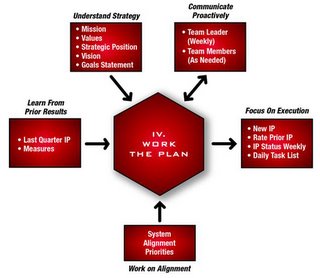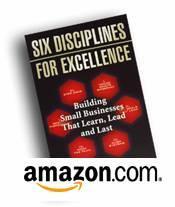LinkedIn, (an online network that professionals can use to find new clients or pick up leads on jobs) has 3.5 million registered users.
To keep track of their needs, they poll or survey 20,000 to 30,000 of them
each month using an online service called
Zoomerang. The price: $599 a year.
Surveys used to be a slow arduous process, with limited results. By optimizing for the Internet, online survey companies like Zoomerang provide value to small (and much larger) organizations that want to stay in touch with their stakeholders (employees, customers, suppliers, etc.)
The value of survey engines cannot be underestimated.
BOTTOMLINE: The Six Disciplines Business System has a built-in, web-based survey engine that enables organizations to quickly produced web-based surveys, send invitations via email to participate in the surveys, and enables you to
track results and trends over time. You can develop any number of surveys for stakeholders, get their opinions and views, take action on their feedback, and execute accordingly.




